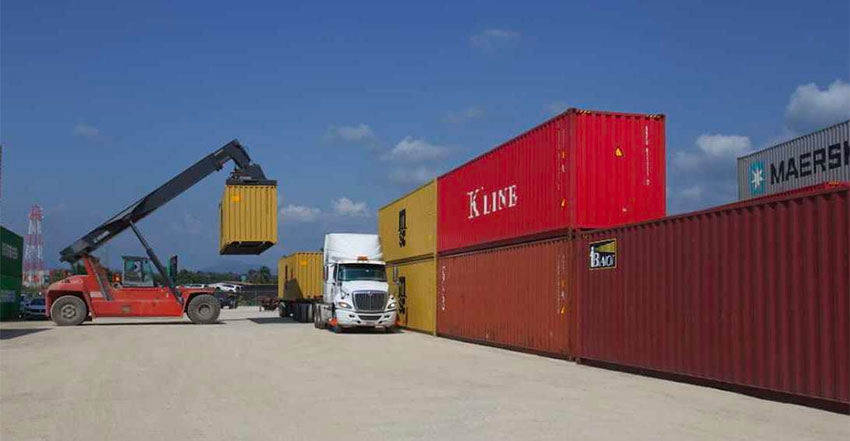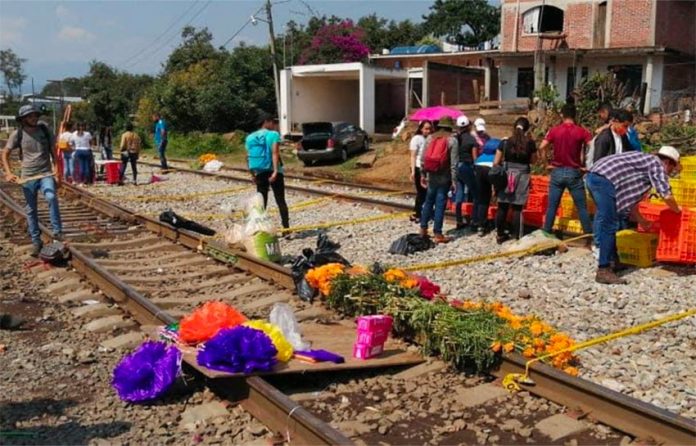They lifted their rail blockades in Michoacán late last month but by early October teachers and teachers in training were once again holding up freight trains in the Pacific coast state, costing industry billions of pesos.
After state police allegedly threatened to remove them with force, teachers and teaching students affiliated with the dissident CNTE teachers union freed tracks in the municipalities of Maravatío, Pátzcuaro, Múgica and Uruapan on September 22.
But on October 2 teachers and normalistas, as teaching students are known, began blocking tracks again to demand the payment of late salaries, bonuses and scholarships as well as the automatic allocation of jobs to graduates.
According to the president of the Business Coordinating Council (CCE) in the port city of Lázaro Cárdenas, authorities haven’t removed the protesters due to a lack of political will.
“It’s not possible that it’s been 27 days [until Thursday] and the tracks are still occupied. I’m convinced that what is lacking is political will to resolve this situation,” said José Luis García.

He and other business leaders, along with industry representatives, workers and many Michoacán residents, are calling on state and federal authorities to solve the problem.
Oscar del Cueto, CEO of rail operator Kansas City Southern de México, told the newspaper Milenio that more than 5,000 containers have been held up at the Lázaro Cárdenas port due to the blockades set up this month in the municipalities of Uruapan, Pátzcuaro and Morelia.
Kansas City Southern has incurred losses of 300 million pesos (US $14.1 million) while industry has lost an estimated 5 billion pesos (US $235.6 million), he said.
Del Cueto, who is also president of the Mexican Railway Association, said the steel industry has been particularly affected because it has been unable to supply automotive plants and factories that make domestic appliances.
He also said that vehicle imports and exports have been delayed by the rail blockades as have auto parts, building supplies and consumer products.
Daniel Torres, a CCE member in Lázaro Cárdenas, said the city’s port is still operating but trucks, rather than trains, are transporting goods to and from the port.
That makes the movement of goods slower as a single train can carry as much freight as 150 trucks, Milenio reported. When the railroad is unobstructed, six trains leave the Lázaro Cárdenas port daily but workers now have to load freight onto 900 trucks to ship the same quantity of goods.
García, the CCE president, said the delay in getting products to their intended destination could cause some companies to close.
“We’ll start to see massive lay-offs and those people, where will they work? Will they be left without work thanks to a handful of teachers blocking the train tracks?”
Meanwhile, the teachers and normalistas warned that they won’t lift their blockades until their demands are met.
But while they remain committed to maintaining their protest for as long as is required, they’re not letting it stop them celebrating the Day of the Dead holiday, which will take place this Sunday and Monday.
In Caltzontzin, Uruapan, on Thursday, protesting teachers and students built Day of the Dead altars on the train tracks they are blocking, using marigold flowers and a range of other items commonly used to attract the spirits of the dead.
Normalistas have also been busy this week robbing trucks in Michoacán. Teaching students hijacked at least three Coca-Cola delivery trucks in Morelia on Wednesday and offloaded hundreds of packages of soft drinks at a teacher training college in the state capital, Milenio reported. There were no reports of any arrests.
Source: Milenio (sp)
